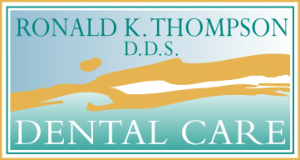Teaching kids about oral hygiene is important to ensure their primary and secondary teeth grow in healthy and strong. It’s not just about protecting their oral health as children, however. When kids learn good brushing and flossing habits from an early age, they’re much more likely to continue those habits as adults. Here are some more useful tips for preventing cavities in your kids’ teeth.
From Birth To Pre-School
Good oral hygiene starts even before the first tooth appears in your newborn’s mouth. After each feeding, clean their gums with moist gauze. This prevents food buildup, and also gets them used to having their mouth cleaned.
Once the first teeth start to appear, brush with an American Dental Association-approved toothbrush, and plain water. There’s no need to start off with toothpaste unless your dentist recommends it. Once they reach 2 years of age, use a pea-sized amount of an ADA-approved fluoride toothpaste, and supervise brushing to make sure they don’t swallow it. Start flossing once your child has enough teeth that there are at least two adjacent to each other.
Your child’s first dental appointment should happen at or before their first birthday. Keeping up regular visits is helpful not just to protect their teeth, but also because it gets them used to this part of the oral healthcare routine and builds a trusting relationship with the dentist.
For Children And Teens
Parents aren’t always sure when to stop supervising their children’s brushing. Your dentist can provide help here, because they’ll be able to examine your child’s teeth and determine if they’re managing to brush and floss properly. Most children can brush and floss without supervision by the time they reach 10 or 11 years old.
Keep up with those regular dental visits to help protect your child’s teeth. And consider asking your dentist about dental sealants or fluoride treatments. Sealants will coat the back molar teeth to protect against tooth decay and fluoride will strengthen the tooth’s enamel.
Once your children hit the teenage years, it’s a good time to talk with them about choices that affect their oral health. Subjects like making nutritious food choices, wearing a mouth guard when playing sports, and avoiding tobacco and oral piercing, are all important things that can help them protect their teeth. Along with regular brushing, flossing, and dental visits, these things can help ensure their teeth will remain healthy and strong into adulthood.
Contact East Valley Dental Care to schedule an appointment for your child.





